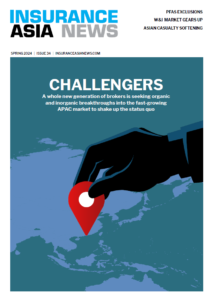SIRC 2021: Culture change needed for digital transformation
November 16 2021 by Karen Lai
During a panel discussion at the 2021 Singapore International Reinsurance Conference (SIRC), experts discussed how to drive digital transformation within a (re)insurance company and came up with the conclusion — change the culture.
“People think transformation is all about technology, but the hardest part to change is culture,” said Pravina Ladva, chief technology and operational officer at iptiQ (which is owned by Swiss Re), on November 16.
Carrying out digital transformation plans within a (re)insurance company is not easy. It requires determination and alignment from the bottom to board level, an end-to-end view on digitalisation and the right sequencing, said David Lynch, group chief technology officer at insurtech bolttech.
You can have a very aligned board and senior leadership, however — if the culture of the organisation is not adapting and modifying ways of working — “you get a lot of resistance,” Lynch added.
To define what could be considered as good culture, Olivier Michel, chief executive of Ancileo, another insurtech, spoke from his experience of working with insurance companies. He said: “You need to create a culture where failure is allowed”.
He further elaborated that the (re)insurance industry tends to be risk averse. Though staff within (re)insurers could be very good at problem solving, they may be scared in pushing decisions. “The one which was very successful, was the one which was trying things and didn’t care to fail. Of course, you need to manage the impact, but that was very important,” he said.
When asked what (re)insurers can learn from the banking industry, Ladva pointed out “pace and focus”. “You start with the customer insights and walk in the customer shoes, so you really understand what the pain points are. Then you are all focused on achieving that aim, and nothing else matters,” Ladva added.
The panel was moderated by Victor Kuk, head of client markets — P&C reinsurance Asia at Swiss Re, for South-East Asia, India, Korea, Hong Kong and Taiwan.

